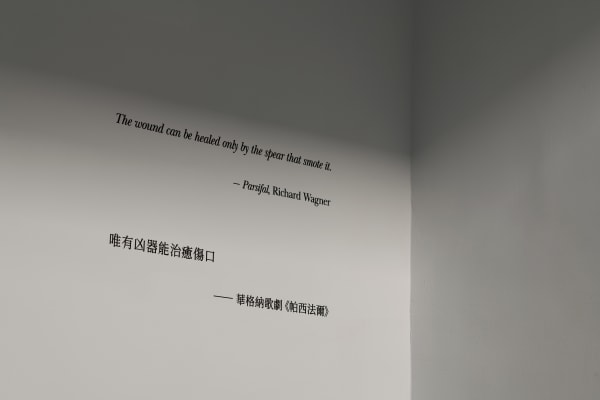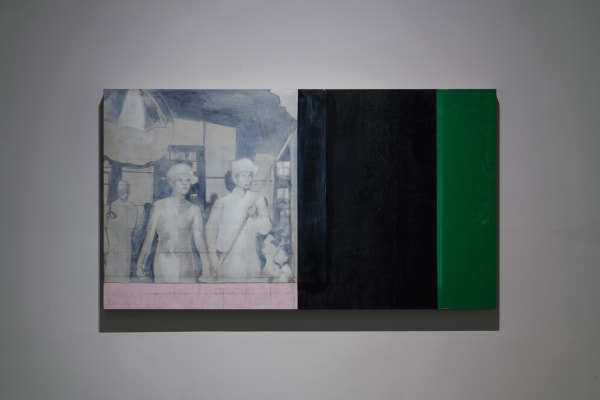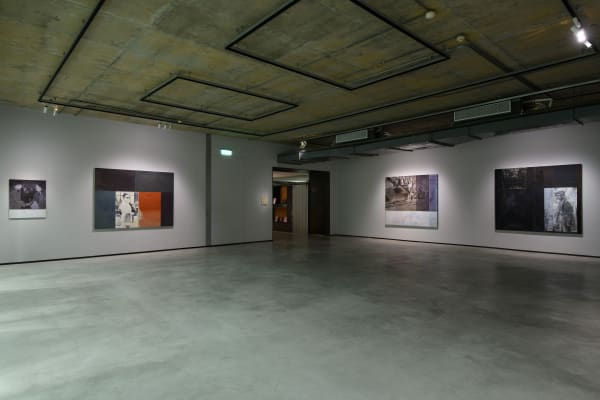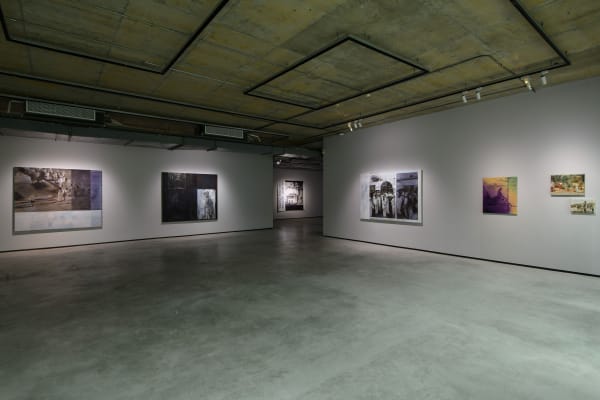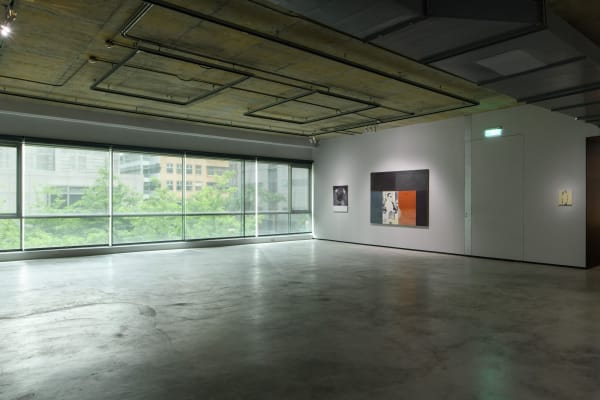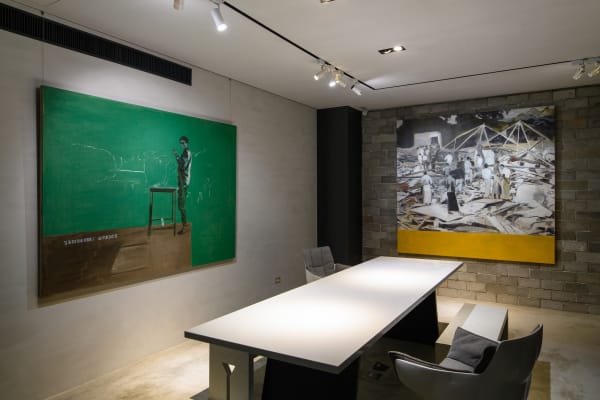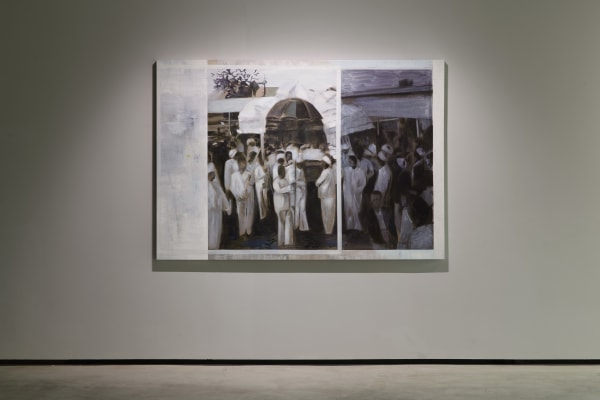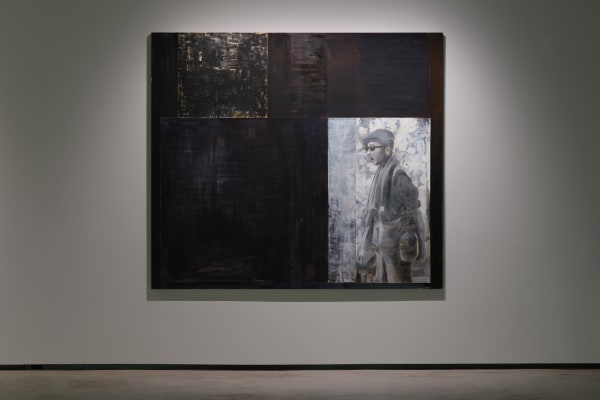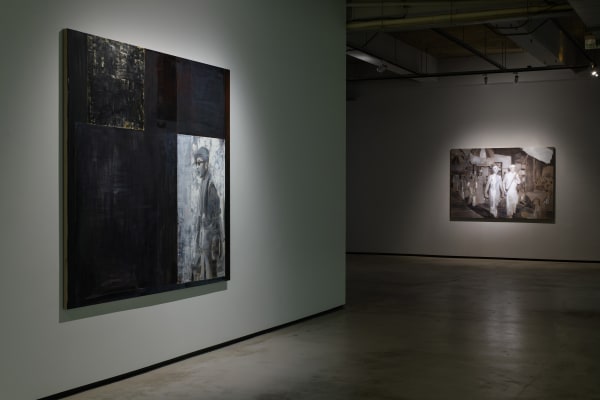YAWNGHWE OFFICE IN EXILE / STATE MUSEUM / ABSOLUTER GEGENSTOSS / ABSOLUTE RECOIL: Sawangwongse Yawnghwe Solo Exhibition
Die Wunde schliesst der speer nur, der sie schlug.
The wound can be healed only by the spear that smote it.
—Parsifal, Richard Wagner
“Yawnghwe Office in Exile” is a fictional office created by Sawangwongse Yawnghwe in his practice. For his first solo exhibition at TKG+, he fabricates a “State Museum” to explore possible narratives for Shan [1] exiles. This museum is impossible to exist even in today’s Burma. Democratized on the surface, Burma’s political structure is still heavily influenced by military intervention. It signifies the impossibility of such imagination existing as knowledge. The term “absoluter gegenstoss” has been used by German philosopher Hegel, and later elaborated by Slovenian philosopher Slavoj Zizek in his book Absolute Recoil (2014). Seemingly synonymous, these two terms do not necessarily translate into each other under the title “State Museum.” While absoluter gegenstoss refers to counterattack, absolute recoil is a force of counteraction. They resonate with each other in that they both embody a counterthrust to the original force.
In Hegel’s discourse, abstraction is more realistic than imagery. Yawnghwe’s painting emerges out of its own loss through the figurative and the abstract, one effacing the other. As Zizek writes, “To designate the speculative coincidence of opposites in the movement by which a thing emerges out of its own loss.” Yawnghwe reckons that the groundlessness of the symbolic order is a nightmare. As Shan’s history is suppressed by Burmese military forces, reality loses its transparency. His paintings attempt to present a reality that is elusive in photography, attestingontologicalwounds that have become exquisitely harrowing. Yawnghwe Office in Exile has established a museum for a country in exile. The people in his paintings, from his grandparents to his father and uncle, their portraits taken when they were part of the military and political organizations in Burma’s recent history, Shan royalty, Union of Burma [2], and Shan State Army [3], together intertwine to form an indispensable part of his family history. Based on historical scenes, these works, reeking of warfare, reveal assimilation policies and ethnic cleansing enforced by military regimes on Shan and other minorities.
Contradiction is the nature of the world. Both sides of contradiction coexist in a dynamic state of difference, even conflict, until they aufheben into the next cycle. This concept is the core of Yawnghwe’s art practice. History shapes power and faith, but it also hijacks thoughts and transmogrifies into violence. Is there truth in history? Do the historical facts that are taken for granted equal to reality, even truth? History is a knowledge system. Even though those in power have the right to dictate history, people are no long indoctrinated in the state’s version of history. Through historical texts, we can understand different perspectives, and form our own stances without being radicalized. And that is a healthy knowledge mechanism.
About Sawangwongse Yawnghwe
Sawangwongse Yawnghwe was born in Shan State of Burma in 1971. He comes from the Yawnghwe royal family of Shan. His grandfather, Sao Shwe Thaik, was the first president of the Union of Burma (1948–1962) after the country gained independence from Britain in 1948. Shwe Thaik died in prison following the 1962 military coup by General Ne Win. Since then, Yawnghwe’s family was driven into exile. They stayed in Thailand, then escaped to Canada, where Yawnghwe grew up and received education. He now lives and works in the Netherlands.
Yawnghwe’s painting and installation practice engages politics with reference to his family history as well as current and historical events in his country. Family photographs also provide the basis for a pictorial language through which he explores events in the country, suggesting that existing and available archives cannot reveal a nation’s entire truth. In addition, Yawnghwe’s work of maps charts the conflicts between drugs such as heroin and amphetamines, revolutionary armies, minority ethnicities, mining and gas pipelines, the armament of generals, and state genocide against its minorities. He intends to bring discernible order to a complex political situation.
Yawnghwe has exhibited internationally. Among these include: The 9th Asia Pacific Triennial of Contemporary Art (Australia, 2018), The 12th Gwangju Biennale Exhibition (Korea, 2018), Dhaka Art Summit (Bangladesh, 2018), Qalandiya International — Jerusalem Show VIII (Jerusalem, 2016), Steirischer Herbst (Austria, 2016), Dak'Art 2016/The 12th Biennale of Contemporary African Art (Senegal, 2016), Indian Art Fair (India, 2016). He has also exhibited in numerous museums, including: Museum of Modern Art in Warsaw (Poland, 2018), Van Abbemuseum (Netherlands, 2018), MAIIAM Contemporary Art Museum (Thailand, 2018), IMMA Irish Museum of Modern Art (Ireland, 2016), and Stedelijk Museum Bureau Amsterdam (Netherlands, 2015). His work is housed in the collections of MAIIAM Contemporary Art Museum in Thailand and Singapore Art Museum.



